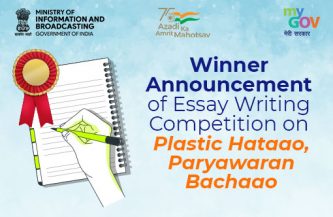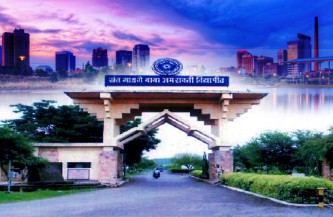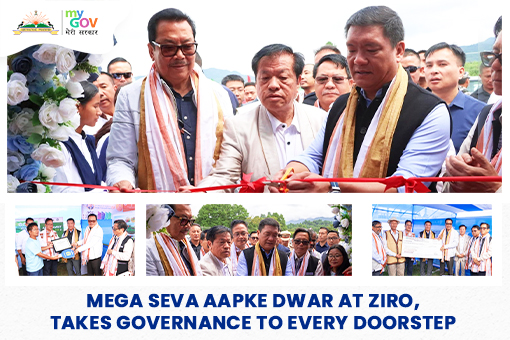India offers an alternate development path for Global South nations

Prime Minister Narendra Modi, at the inauguration of the Third Voice of Global South Summit (VoGSS), attempted to rebalance the terms of South-South engagement with a new conceptual framework that he described as a “Development Compact”. The idea behind the concept is to leverage five different modalities of engagement in a harmonised manner, where one reinforces the other. These are capacity building, technology sharing, trade for development, grants and the most important, concessional finance. If implemented well, India’s Development Compact would set a new baseline for wider engagement with the Global South.
Due to imbalances in the modalities of engagement, a large section of the Global South has ended up in indebtedness of distressing proportions. The figures from UNCTAD (2023) say it all: Developing countries’ public debt in 2023 was $29 trillion; developing countries net interest payments on public debt was $847 billion; 54 developing countries spend more than 10 per cent of their revenues on net interest payments; and developing countries experienced a negative net resource transfer in 2022. Here, it is also worth recalling that the debt crisis has been further accentuated by the continued failure of the OECD countries in meeting their globally agreed UN target of 1970 of providing 0.7 per cent of GNP as ODA (official development assistance); so as their commitment on climate change for $100 billion.
It is extremely important for the Global South to go back to basics and revisit the idea of development which disappeared from the global policy landscape. Led by Reaganism and Thatcherism’s approach to finance driven globalisation and regimentisation of GATT to WTO, the transition completely squeezed out the policy space for developing countries. This, in a way, reinforced the apprehensions that Raul Prebisch and others came up with in the form of the centre-periphery theory. Since the collapse of Washington consensus, VOGSS has given new hope for discussing development in its new incarnation for exploring alternative pathways for economic growth, social inclusion and environmental sustenance.
In this respect, mutual sharing of development experiences and insights on policy making would play a crucial role in evolving new choices. With this year’s theme of “Empowering Global South for sustainable future”, the summit has focused on sharing each other’s experiences, insights and possibilities for evolving an alternative development paradigm. The idea is to have this development narrative based on Southern experiences and perspectives, addressing southern hopes and aspirations.
There are five broad possibilities from the recent development initiatives in India that may be adapted for locally relevant ecosystems in the Global South. The first is in the realm of sustainability, wherein the emphasis is on Lifestyle for Environment (LiFE), re-energising SDGs and promoting renewable energy through rooftop solar panels and solar farms. The second is the area of promoting health security where the driving force for India is around the concept of “One World One Health”. Here, India’s contribution for Arogya Maitri may be recalled. The assistance that India provided to Africa and the Pacific Island countries by building hospitals and Jan Aushadhi Kendras, assumes significance. The third is India’s emergence as the first responder in humanitarian crises, be that in Papua New Guinea, Kenya, Gaza and Ukraine. This highlights the effort that India has been making to prepare other countries to bring in disaster resilience and necessary institutional mechanisms for quick, effective and efficient responses. The fourth relates to promoting financial inclusion and last mile connectivity to be achieved through UPI and Digital Public Infrastructure. India has already signed an agreement with 12 countries for the promotion of DPI. The fifth is the need for strengthening interlinkages in the field of education, skills and capacity building.
For sharing India’s development experience, institutional frameworks would play a vital role in connecting various entities and people. At the VoGSS, the PM recalled India launching the Global South Centre of Excellence, called DAKSHIN, for knowledge promotion, experience sharing and evolving programmes for skills and capacity building. The role of such institutions is to promote a two way flow of knowledge and experiences. A pluralistic perspective would enrich the Global South vision of development by bringing in strategies for overcoming challenges specific to ensuring access, equity and inclusion. These institutions may facilitate the co-creation of knowledge.
Apart from the Development Compact, some of the other announcements are also significant, as they have been targeted to bridge the gaps where they are clearly evident. Policy impact analysis and trade performance have been weak links in the development journey of the Global South. Keeping this in mind, a special fund for capacity building with $2.5 million and $1 million for training in trade policy making has been announced. India has also announced setting up of a Social Impact Fund with an initial contribution of $25 million. According to an RIS study, India currently extends around $7.5 billion annually to various partner countries in the Global South.
Prime Minister Modi’s emphasis on the Global South to come together for voicing their common concerns and also bringing in positive approaches for global solutions is an important call that should be heard earnestly by the Global South community. VOGSS as a platform to discuss some of these issues is an important initiative in a world where uncertainty and vulnerability have multiplied for democratically elected governments. The emphasis on de-stabilising designs through terrorism and active engagement of tools to promote secessionist forces and sectional violence, assumes great significance given the recent events in Bangladesh, whose interim government’s chief advisor Muhammad Yunus was also attending the session.
The writer is Shri Sachin Chaturvedi, Director General, RIS.





